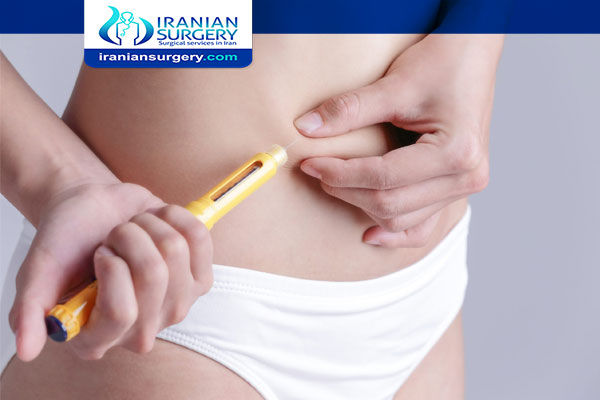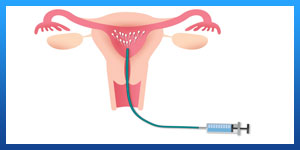How many times do you do IUI before IVF?
Why do IUI instead of IVF?
Do you have to try IUI before IVF?
IVF advantages
IUI advantages
How can I increase my chances of successful IUI?
IUI vs IVF success rates over 40
IUI success rate
IUI injectables vs IVF success rates
Clomid plus IUI has about an 8% per month chance for successful pregnancy. Injectable FSH products ("injectables") plus IUI give about 12% success per month. These statistics hold for about 3 months and after that success rates are much lower.
Read more about: IUI process in Iran
According to at least one study, women who conceived with IVF treatment went through an average of 2.7 cycles. They found that the odds for success for women of all ages after three IVF cycles were between 34 and 42 percent.

Read more about: Ivf in Iran
How many times do you do IUI before IVF?
IUI is often the first treatment suggested to those who want to conceive as it's less invasive and demanding than IVF. It's also much more affordable. If you are a woman under 35, most doctors will suggest 3 to 6 cycles of IUI before moving to IVF.
Read more about: How successful is IVF with donor eggs
Why do IUI instead of IVF?
In IUI, the highest quality sperm are selected and injected into the uterus where they are left to fertilise the eggs naturally. In IVF, the eggs are removed from the body and fertilised in the lab. This means that IUI is a less invasive procedure which involves fewer drugs than IVF. With IUI, women under 35 often have a 10 to 15 percent chance of getting pregnant with just one cycle. With an IVF cycle using a woman's own eggs, the average national success rates range from 45 percent to 50 percent or more for patients under 35 years old.
Do you have to try IUI before IVF?
Before you undergo IVF, it is advisable to partake at least three cycles of IUI. This is especially advised to women below the age of 35 as they have higher chances of conceiving with IUI.
Read more about: How long does donor egg IVF take time
IVF advantages
- higher pregnancy rates
- shorter time to conception
- ability to genetically test the embryos before putting them back
- elimination of most multiple births when only one embryo transferred
- the ability to freeze left over embryos for future use
IUI also has some significant advantages:
- much less expensive (about 1/5 of the cost)
- much less invasive
- fewer drugs, fewer injections
- no need for anesthesia
- less stressful
- lower multiple birth rates when oral fertility drugs are used and multiple embryos are transferred with IVF.
Read more about: Assisted hatching ivf
How can I increase my chances of successful IUI?
Eat Healthily
Your diet influences the success rate of IUI. Add more protein-rich foods to your plate and cut down on carbs. In fact, even if you’re struggling with Polycystic Ovary Syndrome (PCOS), switching to a healthier diet can increase the chances of conception. A good diet always makes way for a better pregnancy.
Start Exercising
Moderate exercise is also good after IUI. However, rigorously working out isn’t recommended by experts. You just need to be active and not sit in a stationary position for long.
Avoid Smoking
As per research, women who smoke need more gonadotropin doses for ovarian stimulation. This negatively affects the IUI success rate. Hence, quit smoking.
De-stress and Control Anxiety
Don’t stress yourself out. Going through IUI may lead to an emotional upheaval, but learn to relax and have realistic expectations. This will make your body react positively to IUI.
Try Acupuncture
Acupuncture practitioners/ authorities recommend acupuncture therapies to increases the flow of blood and eventually improve the quality of the egg. Although allopathy doesn’t recommend it, acupuncture authorities state the therapy could increase chances of getting pregnant.
Take Prescribed Supplements
Coenzyme Q10 (Co Q10) and DHEA are supplements that are quite helpful as they improve fertility, and indirectly improve IUI. Bear in mind that these medicines must be prescribed by your doctor.
Have Sex After IUI
Doctors say that having sex after IUI actually helps. This is because, during sex, the uterus begins to contract, and pushes the sperm towards the fallopian tubes, making the process more efficient.
Be Happy
Do things that make you feel happy and content. Those who believe in the Law of Attraction say that you attract what you imagine. So, when you want to get pregnant, your life must reflect the joy of having a baby.
Read more about: IUI vs IVF
IUI vs IVF success rates over 40
As success rates for IUI in women over 40 years of age tend to be very low, due to biological factors, we feel that it would be unethical to offer IUI treatment in this situation and would always recommend IVF. Here are the chances of pregnancy after one IUI cycle, by age: Under 35: 10 to 20 percent chance of pregnancy. Between 35 and 40: 10 percent chance. Women 40 and above: 2 to 5 percent chance.
Read more about: What is the lowest sperm count for IVF
IUI success rate
For women aged under 35, about 18% of IUI cycles result in a healthy baby being born (a cycle is one full round of IUI treatment). Women aged 35 to 37 have a 14% success rate and the birth rate for women aged 38-39 is 12%.
Some of the common reasons for failed IUI are endometriosis, poor sperm quality, decreased ovarian reserve, poor egg quality, etc.
Read more about: What is the success rate of ICSI IVF?



